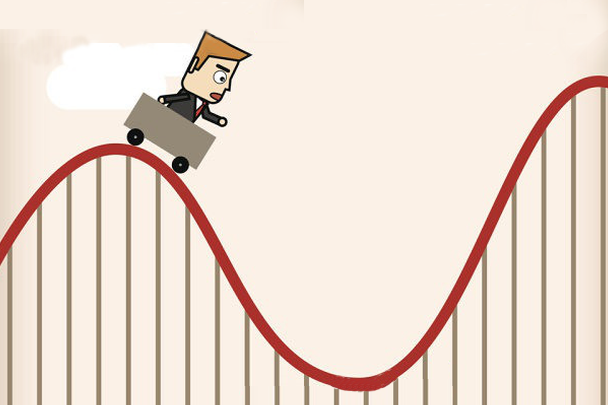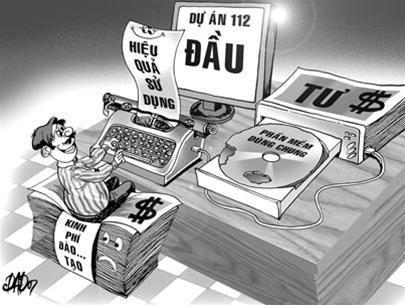Barriers when investing in Vietnam
The free trade agreement between the EU and Vietnam has officially come into effect and opens up unique opportunities for businesses, especially for European companies in general and companies in automotive industry, particularly.
In addition to the special advantages (we discussed in the previous week) there will also be many difficulties ahead.
Except the barriers that exist when outside companies doing business in Vietnam (see also http://vietnamexport.center/content/what-are-challenges-doing-business-vietnam) investors may have the following difficulties. here:
1. Source of raw materials for industry is limited.
This is a little talked about but very important in manufacturing (especially manufacturing accessories for large factories) because of the strict and specific requirements. For example, one of Vietnam's famous mechanical factories was promised a contract to produce a part for cars of a multinational company, but the steel they were assigned to buy from a certain company. Thus, the rate of profit of the mechanical company is very low while they have to invest the entire line to meet the requirements of the automobile industry.
If there is no coordination of investors and integrated construction in many fields, European companies will face the problem of emission quotas, then the production transfer to Vietnam will become completely ineffective. .
However, up to now, Vietnamese authorities are not fully aware and have no plans for this matter. This will be a big barrier to the automobile component companies about the plan to invest in Vietnam, whether EVFTA brings great advantages.
2. Vision
The future of petrol / oil injection cars will not last too long. Within 10-15-20 years, current cars will be partially and mostly replaced by electric cars to ensure environmental and efficiency requirements.
At present, the price of electric cars is still high, not suitable because of small output and concentrated production in a small number of large centers. However, big car companies are waiting for governments to announce new transportation regulations, electric cars will take the market share of traditional cars.
Except for Tesla, big companies (except Toyota) have been researching electric cars and support systems for more than 10 years and only wait for the right time to change the market structure.
Vietnam is on the way to a dumping site for production lines that will become obsolete in the next 10-15 years. In addition, without developed industries (such as European countries, Japan or South Korea) Vietnamese companies actually only assemble finished parts or only process simple parts and do not create added value, In fact, the return is very small on the total investment.
Meanwhile, if the "reasonable jump" skips the end of the petrol / diesel-fueled car technology, Vietnam will have great advantages such as:
- Ignore barriers that need industry (haevy and auxiliary) development.
- Using the largest human resources, young workers can jump directly into areas such as software (indispensable for electric cars and smart cars), electronics industry (where it requires more machinery than heavy industry).
- Taking advantage of opportunities to participate in the production chain (electric cars and the next generation) is forming in the early stage.
- Great geographical advantage when there is a free trade agreement in the ASEAN (650 million people) and next year to the market with the largest population in the world-China. If is used correctly, it is an ideal logistics advantage and are follow advantages of emissions quotas.
3. Restrictions on human resources
Although Vietnam has an advantage over Asean countries in terms of engineers, technicians with direct experience and knowledge from Europe, but it lacks a skilled workforce on demand from leading industries (such as electronics, automobiles etc.). This will be a challenge for the education system, which is heavily academic in Vietnam.
4. Policies The Vietnamese government has a great ambition to push Vietnam's industry forward and separate partly out of Chinese and Asian Industrial powers, but there are signs that Vietnam is on the way into a mess that will become a gathering ground of the old generation automobile production lines of companies (especially in Asia).
And public authorities currently do not have a plan for the future. Many experts say that they (the public authorities) are busy with tariffs and localization to maximize the protection of the Vietnamese automobile industry.
According to forecasts, if nothing changes (temporarily there are not many signs of change) the whole market of Vietnam's personal cars will be almost imported from 2025.
Those are just a few of the difficulties investors will need to consider when planning to move to Vietnam. But success is only for the pioneers, dare to go.
Currently, all the best factors for deciding to invest in Vietnam are converged: timing (free trade between the EU and Vietnam-Asean connecting with Japan, Korea), location (the gateway between China and the ASEAN region), people (a young, potential, determined workforce, although with training limitations that can be overcome).
- Reflecting on a year of resilience: International Women’s Club and the charity
- News digest: Two years on, it seems no one has learned from the Zochova bus stop tragedy
- Further development approved for Bottová Street in Bratislava's 'new centre'
- School forced to cancel event commemorating Zámocká shooting victims
- Weekend: Discover what artists can do with light and cityscape
- The Tatras have something other mountains don’t, this nature-loving Scot thinks
- Passing knowledge from generation to generation
- News digest: Anti-vaxxer government official wraps up pandemic inquiry with DIY test
- Coalition MPs pass tax-laden consolidation package, impacting every wallet
- Slovak Railways makes ticket purchase easier for international passengers
- PM Fico sues editor over book cover, demands €200,000
- One night is too short to enjoy White Night festival in full, says its director
- Top 10 events in Bratislava for foreigners
- 3 things to do in Bratislava for free in the next seven days
- Pustý Hrad castle reveals unseen stories of the past
- Americans in Slovakia share their view on US election ahead of Oct. 4 mail-in ballot deadline
- Not a single bullet to Ukraine, he said. But still the guns and ammunition flow east
- News digest: Drugs raids in clubs to continue, schools will be next








